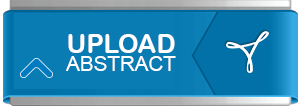Ikenna Eric Onuegbu
Green World Trade, Namibia
Title: Challenges of sustainable solid waste management in developing countries (Case Study: Windhoek, Namibia)
Biography
Biography: Ikenna Eric Onuegbu
Abstract
The handling of wastes is an eternal problem; all societies are confronted with this issue. Their origins are very diverse, they could come from industrial activities, power production, shops, retail or household for instance including medical institutions. While in developed countries the collection is generally efficient and the disposal is safe, but the situation in developing countries is different. The municipal budget does not allow the construction of advanced and expensive methods of disposal and the collection suffer from the age of vehicles. This generalization is nevertheless not totally true as the situation extremely depends on the country but also of the city considered. Each city will need to adapt its waste management according to its size, climate, wealth, culture, development, industrialization etc. This report will focus on the capital city of Namibia called Windhoek City. The aim is to be able to draw a clear picture of the waste management currently achieved. When the situation is well known, new directions to make Windhoek refuse management more sustainable can be decided. Implementing progressively an integrated waste management system (IWMS) is a solution to the waste problem as it is considering economic, social and environmental impacts. A waste characterization was done in order to know the exact amount and composition of the waste generated in Windhoek to implement afterwards the most suitable solution. The refuse of Windhoek is surprisingly very similar to a high-income country. Moreover, the stakeholders involved in recycling were investigated. A small informal sector is already making a living by recycling a few materials as hospital waste and some medical materials like medicinal bottles, glass bottle, and cans. There is also a possibility to include extra stakeholder in the recycling process in Windhoek. Recycling companies, recycling organization or investors are also important stakeholders who can be included in Windhoek recycling plan. Developing recycling in Windhoek is facing some challenges but it is also full of opportunities. The main issue when it comes to recycling in Namibia is the long transportation distances what makes it expensive. Furthermore, most of the recovered materials have to be sent to South Africa because Namibia does not possess the necessary industries to recycle hospital, medical materials, paper and glass for instance. On another hand the presence in Windhoek of a small informal sector already working with waste is promising. The workers could be more organized and the municipality can also help them with logistic and storage to improve the recycling done. The dump site will also be closed within the next years and a new sanitary landfill will be open. It will be a great opportunity to implement a recycling facility on site. Informal workers working on the landfill will be more controlled, to avoid for instance children labor. Some stricter health and safety measure can be decided, to give better working condition to the informal manpower. The development of recycling activities in Tsumeb will be highly beneficial to the community. It will create jobs for the poorest part of the population, decrease the cost of waste management, reduce pollution and stimulate the local economy

